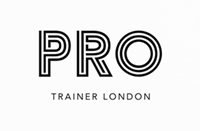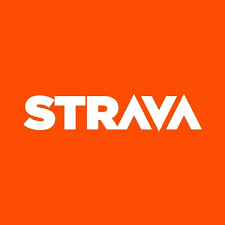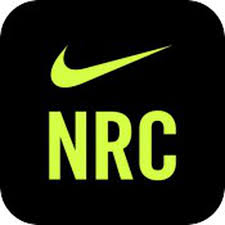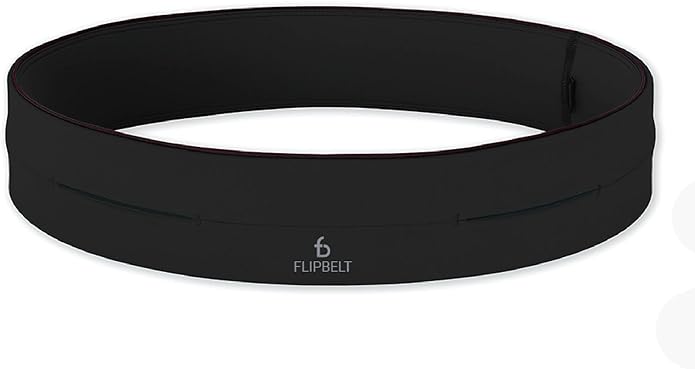RUNNING CLUBS IN LONDON
- Serpentine Running Club: Serpentine RC is one of the largest and most well-known running clubs in London, with a diverse membership of runners of all levels. They offer a range of training sessions, social runs, and racing events throughout the year, as well as coaching and support for members.
- London City Runners: London City Runners is a friendly and inclusive running club based in central London. They welcome runners of all abilities and organize regular group runs, interval sessions, and social events in various locations across the city.
- Mornington Chasers: Mornington Chasers is a long-established running club based in North London. They offer structured training sessions, social runs, and racing opportunities for runners of all levels, from beginners to experienced athletes.
- Clapham Chasers: Clapham Chasers is a popular running club based in South West London. They offer coached training sessions, social runs, and events for runners of all abilities, with a strong emphasis on camaraderie and community spirit.
- Victoria Park Harriers & Tower Hamlets AC: VPH & THAC is a running club based in East London with a rich history dating back over 100 years. They offer track training sessions, road runs, and cross-country events for runners of all ages and abilities.
- Thames Hare and Hounds: Thames Hare and Hounds is one of the oldest cross-country running clubs in the UK, founded in 1868. Based in South West London, they offer regular training sessions, social runs, and cross-country races for runners of all levels.
- Ealing Eagles Running Club: Ealing Eagles is a friendly and welcoming running club based in West London. They offer structured training sessions, social runs, and events for runners of all abilities, with a focus on inclusivity and enjoyment.
- Dulwich Runners AC: Dulwich Runners is a running club based in South East London. They offer training sessions, social runs, and racing opportunities for runners of all levels, with a strong sense of community and support.
WHY IS RUNNING SO GOOD FOR YOU?
Cardiovascular Health: Running is a low-impact aerobic exercise that gets your heart pumping and improves cardiovascular health. Regular running can help lower blood pressure, reduce the risk of heart disease, and improve overall heart function.
Weight Management: Running is an effective way to burn calories and maintain a healthy weight. A brun can help you burn calories and boost your metabolism, making it easier to achieve and maintain a healthy weight.
Strengthens Muscles and Bones: Running engages multiple muscle groups, including the legs, hips, core, and arms. It helps strengthen muscles, improve joint flexibility, and promote better bone density, reducing the risk of osteoporosis and age-related bone loss.
Improves Mood and Mental Health: Ruinning has been shown to reduce stress, anxiety, and depression, while boosting mood and mental well-being. The combination of physical activity, fresh air, and exposure to nature can have a positive effect on mental health and overall quality of life.
Enhances Respiratory Health: Running increases lung capacity and improves respiratory function by promoting deeper breathing and oxygen uptake. Regular running can help improve lung efficiency, increase oxygen delivery to the muscles, and enhance overall respiratory health.
Promotes Better Sleep: Engaging in regular physical activity like running or walking can help improve sleep quality and duration. Running in the morning or early evening can help regulate your body's internal clock and promote better sleep patterns.
Enjoyment of Scenic Views: London is home to many iconic landmarks, historic sites, and picturesque parks and gardens. Running allows you to explore the city at a leisurely pace, taking in the sights, sounds, and vibrant atmosphere of London's streets and green spaces.
Connects with Nature: Despite being a bustling metropolis, London boasts numerous green spaces and natural areas where you can escape the hustle and bustle of city life and connect with nature. Running in parks like Hyde Park, Regent's Park, or Hampstead Heath provides opportunities to enjoy the beauty of nature and workout at the same time.
Cultural Exploration: Running in London allows you to explore the city's rich history, architecture, and cultural landmarks up close. From historic landmarks like the Tower of London and Buckingham Palace to vibrant neighborhoods like Covent Garden and Shoreditch, there's always something new to discover on foot.
What are the best Running apps
STRAVABest overall running app. Provides detailed data tracking, social features to connect with friends, and the ability to compete on segments.
|
MAPMYRUNExcellent for data tracking like distance, pace, elevation, and more. Has free and premium versions with advanced features.
|
NIK RUN CLUBOffers personalized training plans, audio-guided runs, and a supportive community. Great for beginner to intermediate runners.
|
RUNNASpecialized for training plans, with customized schedules for 5K to ultramarathon distances. Syncs well with running watches.
|
PELETONIdeal for treadmill running, with motivating trainer-led classes and themed runs. Also has outdoor running audio workouts.
|
BEST RUNNING APPS FOR BEGINNERS
Couch to 5K - A popular app that guides new runners through a 9-wk program to build up to running a 5K.[4]
MapMyRun - The free version provides a simple, user-friendly way for beginners to track runs & progress.[4]
OTHER NOTABLE RUNNING APPS
Komoot - Great for discovering and following trail running routes, with a social community aspect.[2]
Stride - A newer app that gamifies running by allowing you to compete against nearby users.[3]
TRY BEFORE YOU UPGRADE
The best app for you will depend on your specific needs and goals, whether that's detailed data tracking, structured training, a social community, or just getting started with running. Many of these top apps offer both free and premium versions to choose from.[1][2][3][4]
BEST RUNNING APP CITATIONS:
[1] https://barbend.com/best-running-apps/ [2] https://www.marieclaire.co.uk/life/health-fitness/best-running-apps [3] https://www.tomsguide.com/round-up/best-running-apps [4] https://www.letsdothis.com/blog/article/ldts-top-5-running-apps [5] https://www.womensrunning.co.uk/gear/best-running-apps/
how long should I train before I take part in the London marathon?
At Least 16-24 Weeks
- Most training plans for the London Marathon are 16-24 weeks long, even for beginners.[2][4][5]
- The first 4-8 weeks should be spent building a running foundation and getting used to regular exercise.[4]
- After that, a structured 17-week training program is recommended, which includes a mix of easy runs, long runs, hill work, and speed sessions.[4]
Start Slow and Build Up Gradually- It's important not to overdo it at the beginning and risk injury. Start with 30 minutes of walking or light jogging 4 times per week, then gradually increase your mileage and intensity.[3]
- Increase your weekly mileage by no more than 10% each week to allow your body to adapt.[1]
Minimum of 6 Months Recommended- While 16-24 weeks of focused training is typical, experts recommend allowing at least 6 months to properly prepare for your first marathon.[4]
- This gives you enough time to build a solid foundation, follow a structured plan, and mentally prepare for the challenge.[4]
The key is to start early, build up slowly, and follow a well-designed training program that progressively prepares your body and mind for the demands of the London Marathon. With 16-24 weeks of dedicated training, most beginners can successfully complete the 26.2 mile course.[1][2][3][4][5]
London Marathon Citations:
[1] https://www.fitnessfirst.co.uk/blog/how-to-train-for-the-london-marathon-a-comprehensive-guide [2] https://www.samaritans.org/tcs-london-marathon-2024/tcs-london-marathon-2024-runner-resources/training-guidance/ [3] https://www.tcslondonmarathon.com/training/training-hub/starting-your-marathon-training [4] https://www.bbc.co.uk/bitesize/articles/zrb3xyc [5] https://www.chelmsfordphysio.co.uk/how-long-does-it-take-to-train-for-a-marathon
MORE MARATHON QUESTIONS
What are some common training plans for the london marathon?
How often should i train for the london marathon?
What are some tips for staying motivated during marathon training?
HOW MANY PEOPLE COMPETED IN THE LONDON MARATHON?
How many finished?
LOW IMPACT PRO TRAINING RECOMMENDATIONS
WALKINGGoing for a walk or even better a brisk walk, in your local London neighbourhood will help you to burn calories, keep fit and also the fresh air will help with a positive mental attitude.
|
SWIMMINGSwimming in London is a great all round physical activity and will help with stretching, muscle forming and toning of all areas of the body. Swimming is a low impact on the body so is for everybody
|
CYCLINGCycling in London is a fantastic low impact way to keep fit and get out and about in London. Aswell as being a good way to help save money and jump on that green bandwagon
|
















 RSS Feed
RSS Feed

